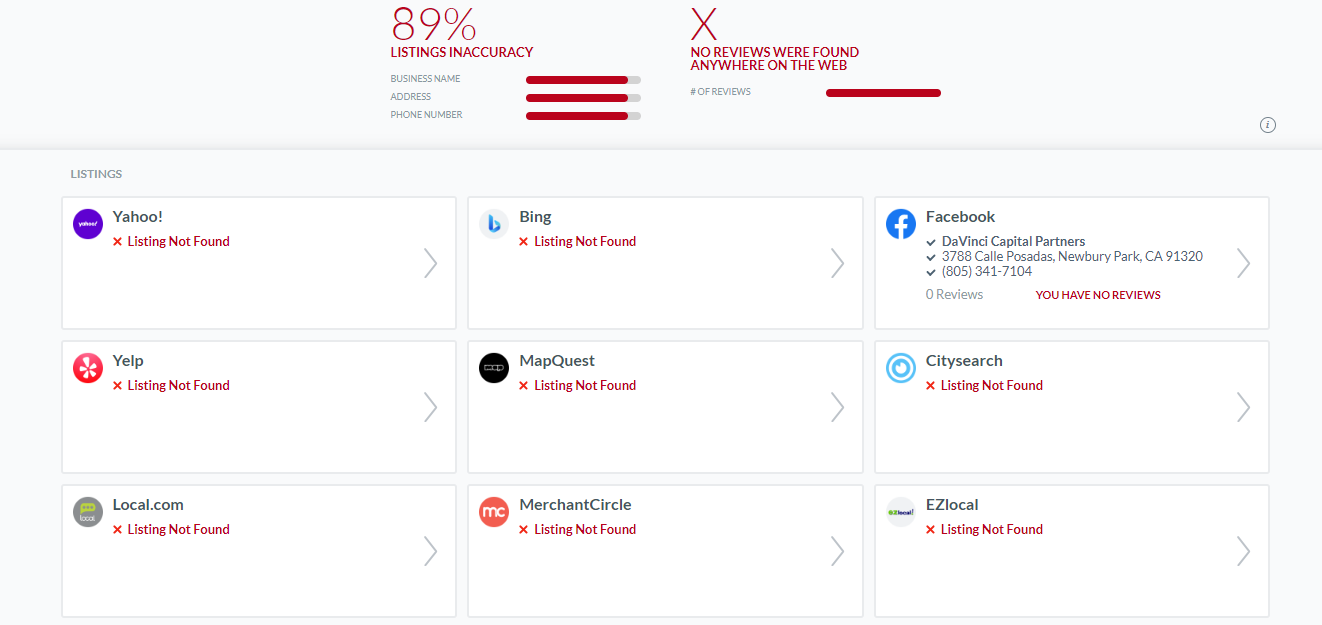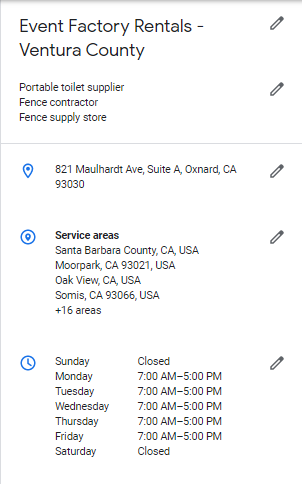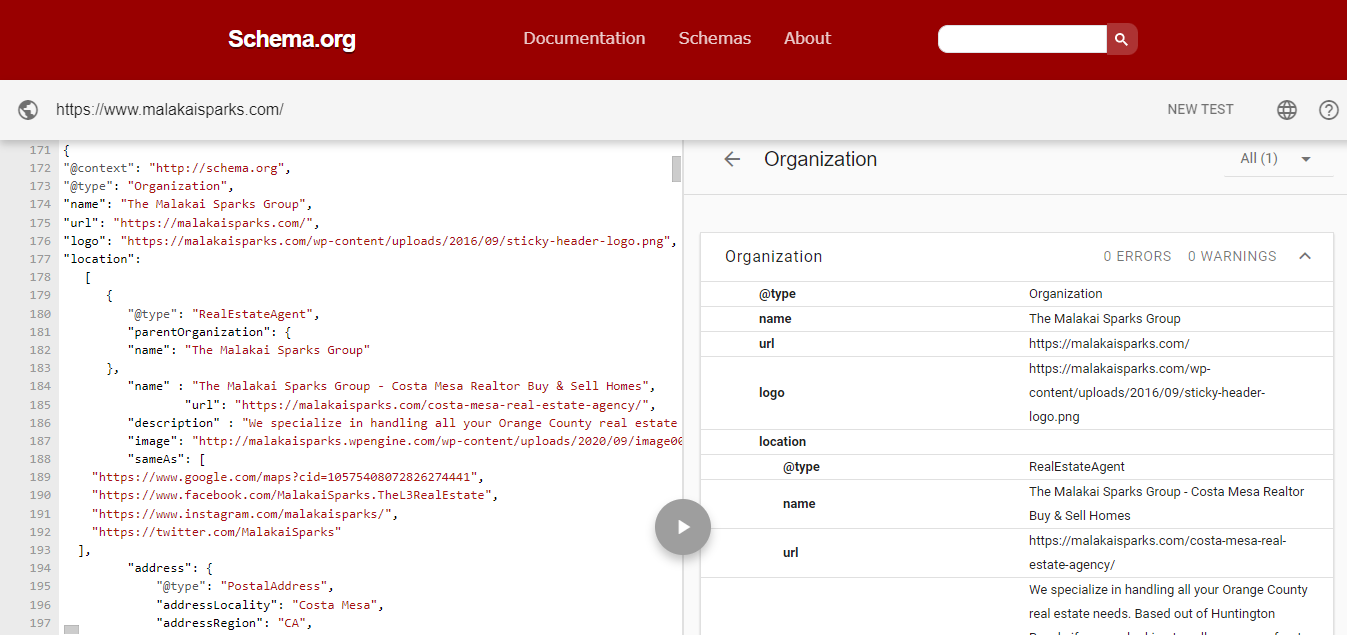Given the ever increasing number of brick and mortar-based businesses competing for customers online, Local Search Engine Optimization (Local SEO) is perhaps more significant than ever before. With many companies vying for a limited number of spaces in the “Local Map Pack”, finding strategic ways to achieve, and then maintain, the highest positioning possible, is an absolute must. Since 2014, the SEO experts at Fivespot have helped clients in a variety of industries command their local markets by substantially improving their local search presence. This, in turn, enhances website traffic, new customer acquisition, and associated sales revenue. Based on our extensive experience, here are some valuable tips on ranking well for local search this year and beyond.
Having Accurate and Consistent Online Business Listings is Essential

For businesses with one or more locations, online business directory listings (also known as local citations) are absolutely critical. To be more specific, you want to make certain that your business’ primary information (name, address, phone number, business hours, contact email, URL, etc.) is complete and accurate across as many directory websites like Yahoo, Yelp, and Yellowpages as possible.
From the perspective of search engines like Google, Bing, and Yahoo, it’s a bit of a red flag when businesses either are missing from many well-known directory websites or otherwise have listings with conflicting information. As these platforms seek to connect searchers with local businesses they deem authentic and reputable, having complete and consistent information across the board is one significant way to reinforce this notion of legitimacy.
Regarding prospective customers or clients, it ultimately doesn’t do your business much good if the address and/or phone number they come across online is incorrect. Noticing conflicting information may also be off putting for some individuals searching for local products and services.
The Special Significance of Google Business
In many ways, Google Business (also known as Google My Business) is the crown jewel of online business directories. As a vast majority of searches across device and browser types are conducted on Google, having a complete and accurate Google Business Profile is fundamental to overall success. Please note that if your business has more than one physical location, we strongly recommend creating a Google Business Profile for each one to maximize your local outreach.
If your business does not have an existing profile, you will want to create one by going to Google’s Business Profile website and signing in with your Google Account. As part of their due diligence in validating the business, Google will require you to verify the listing by mailing a postcard with a unique PIN number to the business address. If you’re lucky, you may also have the chance to finalize your business profile through phone verification instead. Over time, however, this latter option has become increasingly less available. No matter which method you ultimately use, your profile must be verified to display on the search results.
Beyond having the Google Business Profile verified, you will also want to ensure that it is filled out as completely as possible with accurate information. Over time, Google has added additional information fields to enable businesses to share even more company details with potential customers. It is therefore well worth it to fill out the profile in-depth, and keep it updated with the latest information. If you end up moving your business, changing the phone number, adjusting the business hours, or making any other changes, you will want to reflect these changes on the Google Business Profile as quickly as you can.

Implement Structured Data Markup Appropriately

Structured Data Markup is essentially code added to your website that is specially formatted for easy search engine consumption as they “crawl” web pages for ranking. This data reinforces for Google how your business should be categorized, where it is located, and what products and/or services it provides. While the Structured Data Markup can vary depending on the type of business involved, foundational information like business name, address, phone number, and operating hours is relevant for all. Structured Data also helps to generate what Google terms “Rich Snippets”. These snippets display as added bits of information on the search results pages that can further drive brand awareness and overall visibility.
You should also know that there are different Structured Data formats that can be implemented on your business website. One such format is HTML Schema, where the content itself is visible to site visitors. What remains hidden from public view are the specific data tags that reference particular elements. While HTML Schema is still used, a JavaScript-based alternative called JSON-LD has become preferable for search engines. Unlike HTML Schema, JSON-LD script is meant to be read by search engines but is not visible to human eyes exploring the front end of the site. With getting the formatting correctly being of such importance, it is worthwhile to use the Structured Data Testing Tool to identify any errors or warnings that should be corrected.
Don’t Neglect Online Review Acquisition and Monitoring

As time goes on, the number of people that seek out customer reviews online prior to selecting a product vendor or service provider is only increasing. Business owners therefore ignore the growing importance of online reviews at their own peril. Online reviews, whether on Google, Yelp, Facebook, or other platforms, serve as trust signals for potential customers aiming to make sure that the company they ultimately choose to work with or purchase from is dependable, trustworthy, and committed to top-tier customer service.
Search engines also view online reviews as trust signals, and factor the quantity and quality into their main ranking systems. If you want to improve the likelihood of getting top Local Map Pack positioning, you should look to acquire new reviews (particularly Google Reviews) on a fairly consistent basis.
Additionally, you will want to carefully monitor the reviews that come in, and appropriately respond to them all regardless of whether they are positive or negative. When addressing criticism, keep your tone non-confrontational and address the comments in a way that doesn’t come across as hostile or otherwise accusatory.
Responding in a professional manner to negative feedback lets others know that you truly care about customer input and take it seriously. Similarly, taking the time to reply, even briefly, to positive feedback is a similar indicator that your company cares about providing the best experience possible and is listening intently to what is being said.
Let Fivespot Take Your Local Search Presence to a Whole New Level
At Fivespot, our results-driven approach to Local Search has enabled clients to stand out from their competitors online and achieve the business growth they’re looking for. We have carefully refined our strategies over time to ensure that we continue providing the best Local SEO services in the industry. If you’re interested in learning more about how our team can assist you in ranking well for Local Search now and in the future, please request a free consultation or call us at (818) 964-0617.




